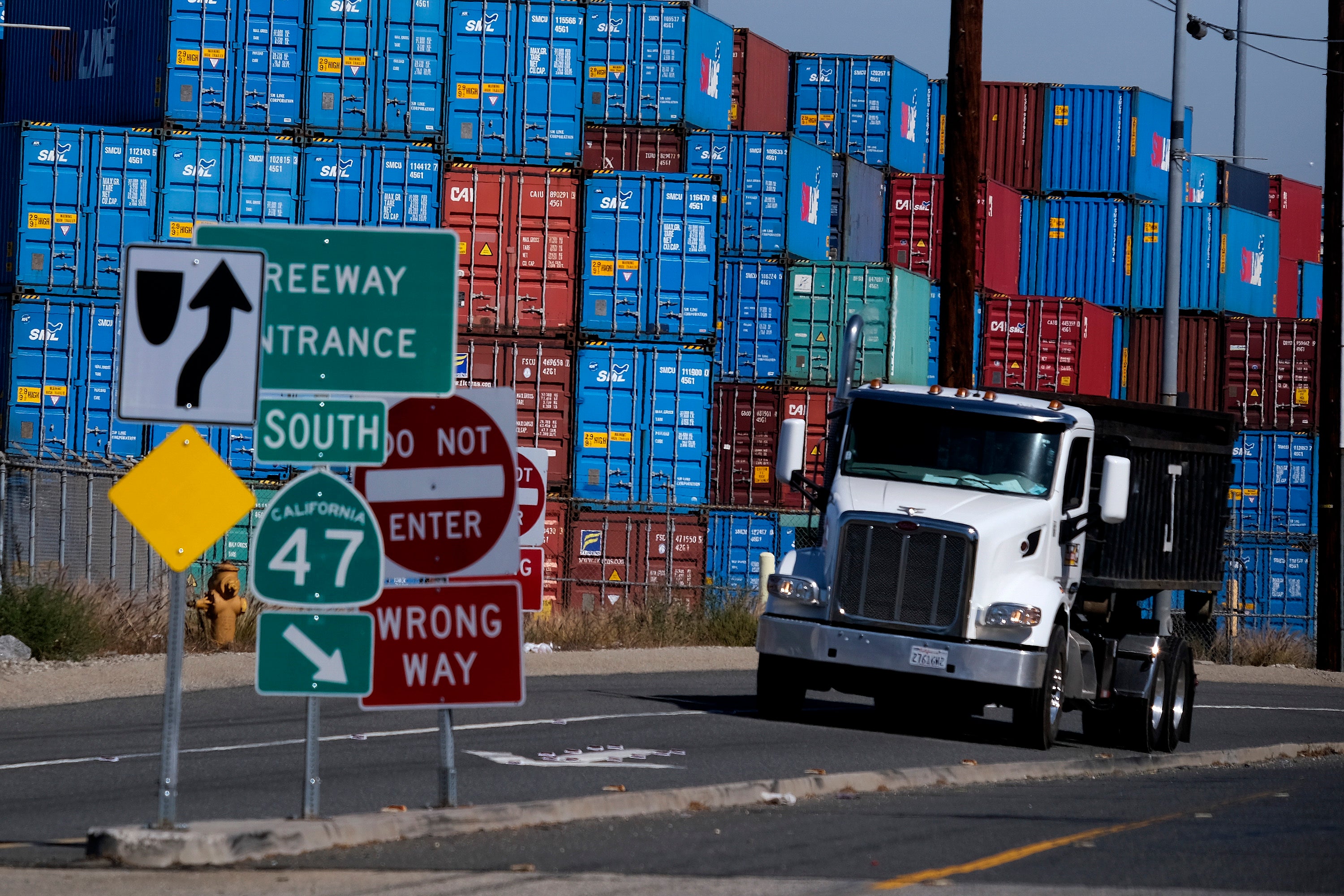LA, Long Beach ports will issue fines for backlogged cargo
The Los Angeles-Long Beach port complex will begin fining shipping companies if they let cargo containers stack up as the nation’s busiest twin harbors deal with an unprecedented backlog of vessels

Your support helps us to tell the story
From reproductive rights to climate change to Big Tech, The Independent is on the ground when the story is developing. Whether it's investigating the financials of Elon Musk's pro-Trump PAC or producing our latest documentary, 'The A Word', which shines a light on the American women fighting for reproductive rights, we know how important it is to parse out the facts from the messaging.
At such a critical moment in US history, we need reporters on the ground. Your donation allows us to keep sending journalists to speak to both sides of the story.
The Independent is trusted by Americans across the entire political spectrum. And unlike many other quality news outlets, we choose not to lock Americans out of our reporting and analysis with paywalls. We believe quality journalism should be available to everyone, paid for by those who can afford it.
Your support makes all the difference.The Los Angeles-Long Beach port complex will begin fining shipping companies if they let cargo containers stack up as the nation's busiest twin harbors deal with an unprecedented backlog of vessels.
The Los Angeles and Long Beach harbor commissions voted Friday to implement a 90-day “container excess dwell fee” that sets time limits on how long containers can stay at marine terminals.
About 40% of all shipping containers entering the U.S. come through the Los Angeles and Long Beach ports. The number of ships waiting to unload has risen to record volumes.
As of Friday, there were 153 ships at anchor, berthed or “loitering" — cruising while awaiting dock space — and more than 100 of those were container ships, according to the Marine Exchange of Southern California, which monitors port vessel traffic.
Ships anchored at the complex have well over a half-million containers on board, officials said. They hold hundreds of millions of dollars worth of toys, electronics, clothing and furniture.
“We’re going through a significant crisis,” Mario Cordero, executive director of the Port of Long Beach, told that harbor commission on Friday.
The logjam of ships has interrupted the global supply chain and prompted the Biden administration to allow the port complex to operate 24 hours a day to try to get goods unloaded and out to consumers as the Black Friday and Christmas holiday season approaches.
The joint container fee program that starts on Nov. 1 will charge ocean carriers $100 per container. But the fine increases by $100 per container per day until the cargo moves.
Containers moving by truck can remain for eight days before the penalties kick in, while containers moving by rail have a five-day deadline, according to the Port of Los Angeles
The penalties won’t take effect until Nov. 15 at the earliest, however, depending on whether daily snapshots of the situation show progress in clearing the docks.
“Our objective with this program is not to generate revenue” but to make room for ships waiting to enter the port, Los Angeles Harbor Commission President Jaime Lee said in a statement.
The average waiting times for cargo to be picked up has doubled in the wake of an import surge partly brought on by the COVID-19 pandemic, which affected traffic from Asian suppliers.
Another problem is a lack of industrial warehouse storage space in the region. Before the surge, truck-bound cargo generally left a terminal in less than four days, and containers headed to trains only languished for a couple of days.